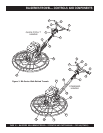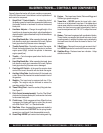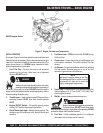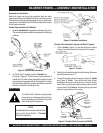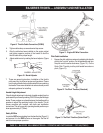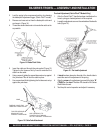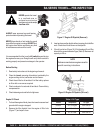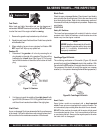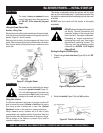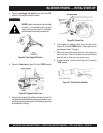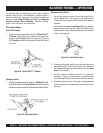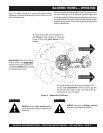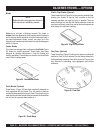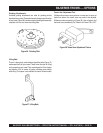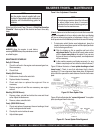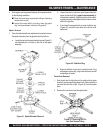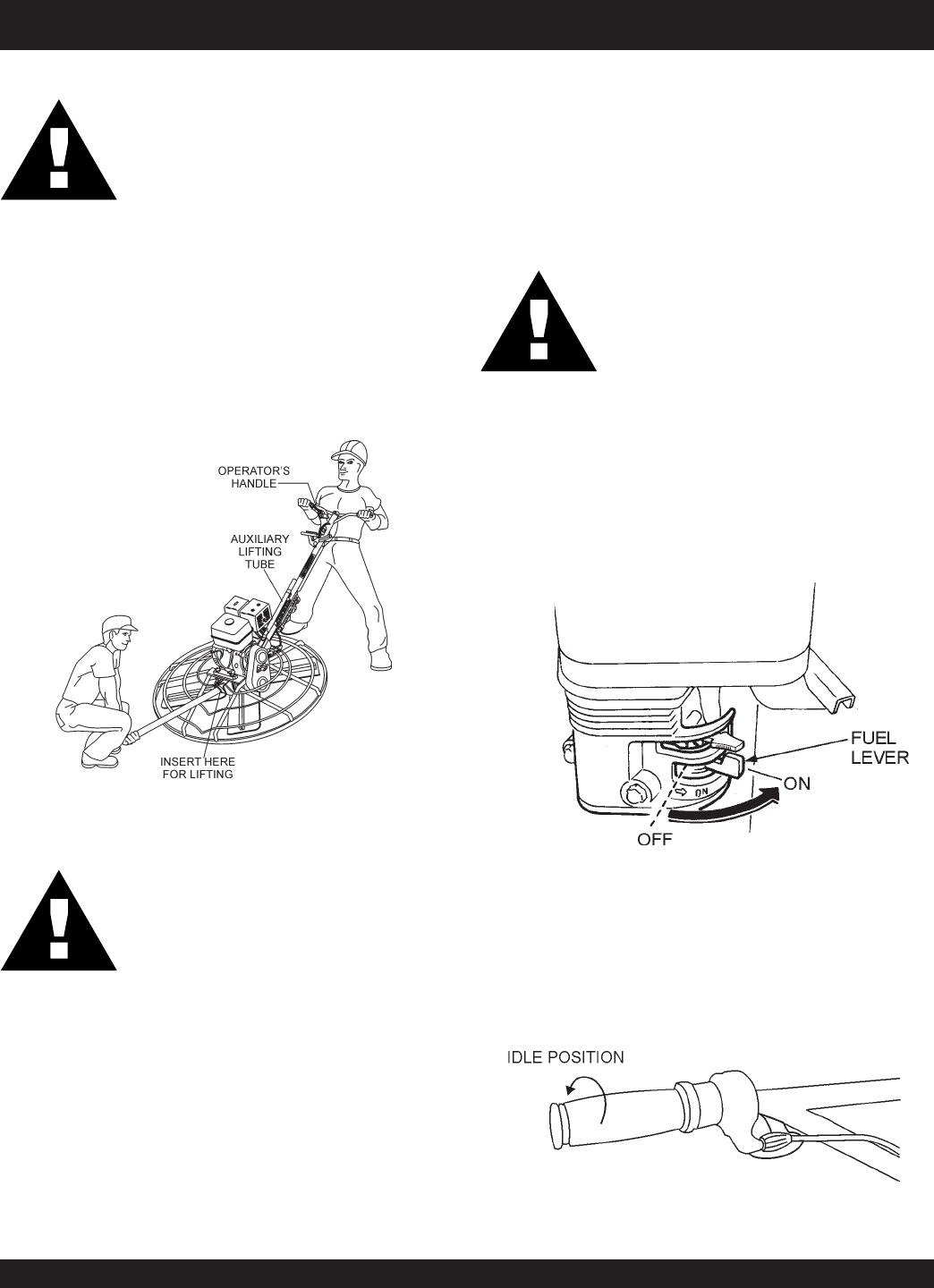
PAGE 24 — BA-SERIES WALK-BEHIND TROWEL— OPERATION AND PARTS MANUAL — REV. #6 (07/06/10)
BA-SERIES TROWEL — INITIAL START-UP
This section is intended to assist the operator with the initial
start-up of the walk-behind trowel. It is extremely important that
this section be read carefully before attempting to use the trowel
in the field.
DO NOT use your trowel until this section is thoroughly
understood.
CAUTIONCAUTION
CAUTIONCAUTION
CAUTION
Starting the Engine (
HONDA
engine)
1. Place the engine
fuel valve lever
(Figure 22) to the "ON"
position.
DO NOT attempt to operate the trowel until
the Safety, General Information and
Inspection sections of this manual have
been read and thoroughly understood.
Depending on engine manufacturer,
operating steps may vary. See engine
manufactures operating manual. The
following start-up procedure makes
reference to a HONDA 13 HP Engine
(Manual Start).
2. Rotate the
throttle
(Figure 23) to the "idle" position.
Figure 22. Engine Fuel Valve Lever
Figure 23. Throttle (Idle Position)
Lifting the Trowel Onto a Slab.
Auxiliary Lifting Tube
Remove the auxiliary lifting tube located on top of the main handle.
Insert the tube into the socket located on the opposite side of the
gearbox (Figure 21) from the handle.
Make sure that the hole in the tube engages with the pin in the
socket. With one person lifting from the main handle, and another
lifting from the auxiliary lifting tube pick up the machine to move
onto a slab.
Figure 21. Lifting the Trowel
Lifting Bale (Option)
The lift bale is optional on new trowels. It provides an optimal lift
point for moving the trowel.
Lift bales
or
forklift
can be used to
lift a trowel up onto a building with a crane. See “
Optional
Equipment
” section in this manual for ordering information.
Using a
crane
to move a machine with a lift bale is highly
recommended, and is perfectly safe for the machine. Extra care
should be taken when lifting the machine off the ground, though.
Serious damage to the machine or personal injury could be
caused by dropping a trowel.
CAUTIONCAUTION
CAUTIONCAUTION
CAUTION
The trowel is
heavy
and
awkward
to move
around. Use proper heavy lifting procedures
and DO NOT
lift the trowel by the guard
rings.
CAUTIONCAUTION
CAUTIONCAUTION
CAUTION
The trowel must be stabilized by the person
carrying the
operator’s handle
(Figure 21).
If it is not stabilized properly the handle may
swing around and
flip
the trowel, thus causing
damage to the trowel and bodily injury.



